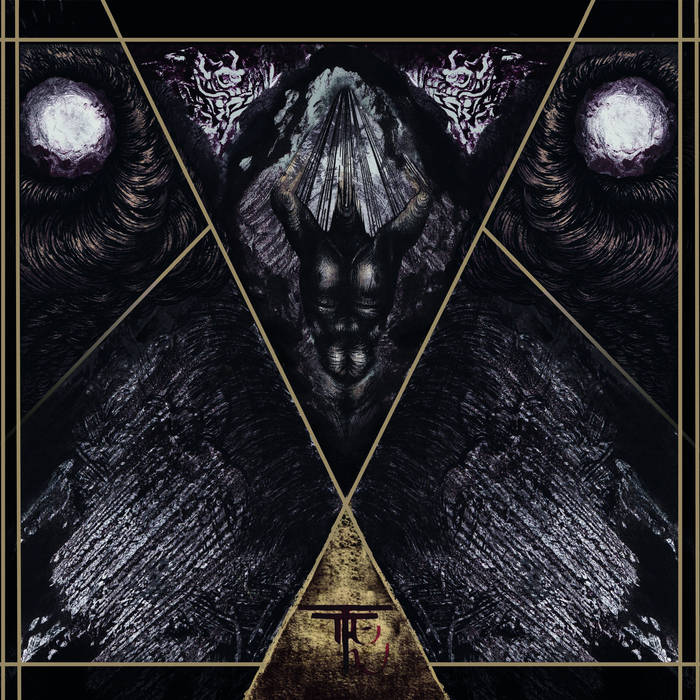
It takes a certain degree of self-belief to title your work Grand Oevre, given that it translates either as ‘Great Work’ or ‘Masterpiece’, but one listen to Triste Terre, the French Occult Black Metal band and you realise that self-confidence is not in short supply. Having honed their skills over the course of 3 EPs, Triste Terre are certainly ambitious, crafting a dense, atmospheric album that treads a line between raw-throated black metal and the grandiosity of doom. Aided by their label, Les Acteurs de l’Ombre Productions, the band have been given the necessary resources to package their album in the manner it deserves (this is something of a speciality of LADLO Productions and one of the reasons they’re a label who are worth following), the piece housed in a stunning digipack complete with booklet and eye-catching artwork courtesy of Marianne Plasse.
Clocking in at over an hour, with only six tracks on offer, Grand Oevre is not a record for those with a short attention span and the average track takes its time to unveil its secrets. As a case in point, opening track Ouvre au noir, plays out like a neo-classical symphony, the Baroque opening giving way to a regal death march of frozen riffs worthy of Emperor. With a production of considerable depth, each element of the band’s sound is revealed before the vocals finally appear, some two minutes in. It is a remarkable opening track, as grandiose as the album’s title demands and filled with an aura of dark mystery. Even the mixing plays out perfectly, the harrowing vocals cleverly mixed low, so as to appear almost hymnal, without sacrificing their power or creeping malevolence. Rather than separate out the tracks, the band segue directly into Corps Glorieux, a churning maelstrom of blackened riffing that seems to envelop the listener like a slow-motion tornado. Expanding upon the sonic palette of the opening track, it is clear that Triste Terre had a complete album in mind when they wrote these pieces and, as each element notches into place, the grand design becomes increasingly apparent. It is at moments like this, when black metal stands at its most ambitious, that you start to realise just how awe inspiring the genre can be when given the freedom of its own aspirations. A creeping melodicism emerges at the outset of Nobles Luminaires, an atmospheric piece with post-metal elements emerging from the mix. Almost progressive in its sweeping ebb and flow, nobles luminaires is a masterclass in elegant song-writing and marks a high point.
Aptly-titled, the epic grand Architecte evokes images of a black mass held in a desecrated cathedral, candles faltering as the wheezing organ slowly gains momentum. Once more, the listener is struck, not only by the scale of the band’s musical ambitions, but also by their ability to realise them. Entrancing the listener, the mesmerising, monolithic lueur Emerite has a chant-like quality that seems to resonate in the air somewhere between the speakers. Play it loud and it blots out the daylight, leaving you lost in a world of Triste Terre’s making. As it progresses, ebbing into its eleventh minute, so commanding voices emerge from the blackness, exhorting the listener to unspeakable acts as riffs crash around them. It leaves only Tribut Solennel to bring the album to a close, the opening notes of the track surprisingly airy after the dense claustrophobia of its predecessor. The band soon deploy a more harrowing riff, and the album is brought to an eerie, atmospheric close.
Grand Ouvre is, by any metric, a masterpiece and, having been absorbed in the record, it seems that the title is nothing more than a statement of absolute truth. The music ebbs and flows over six tracks, although the term movements might be more accurate in this instance. Drawing on doom, black metal, post rock and even progressive, there’s a grand symphonic sweep to the band’s music that recalls the regal elegance of Emperor and the album cannot come highly recommended enough. 10



